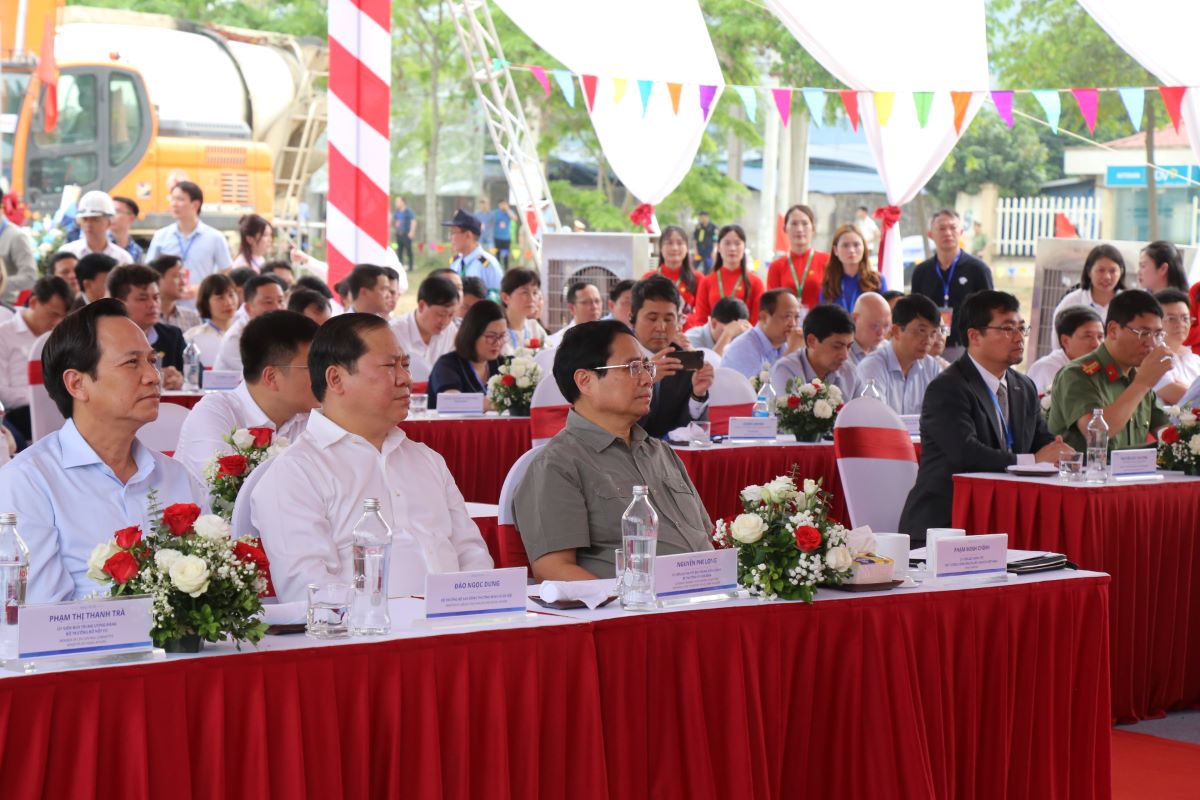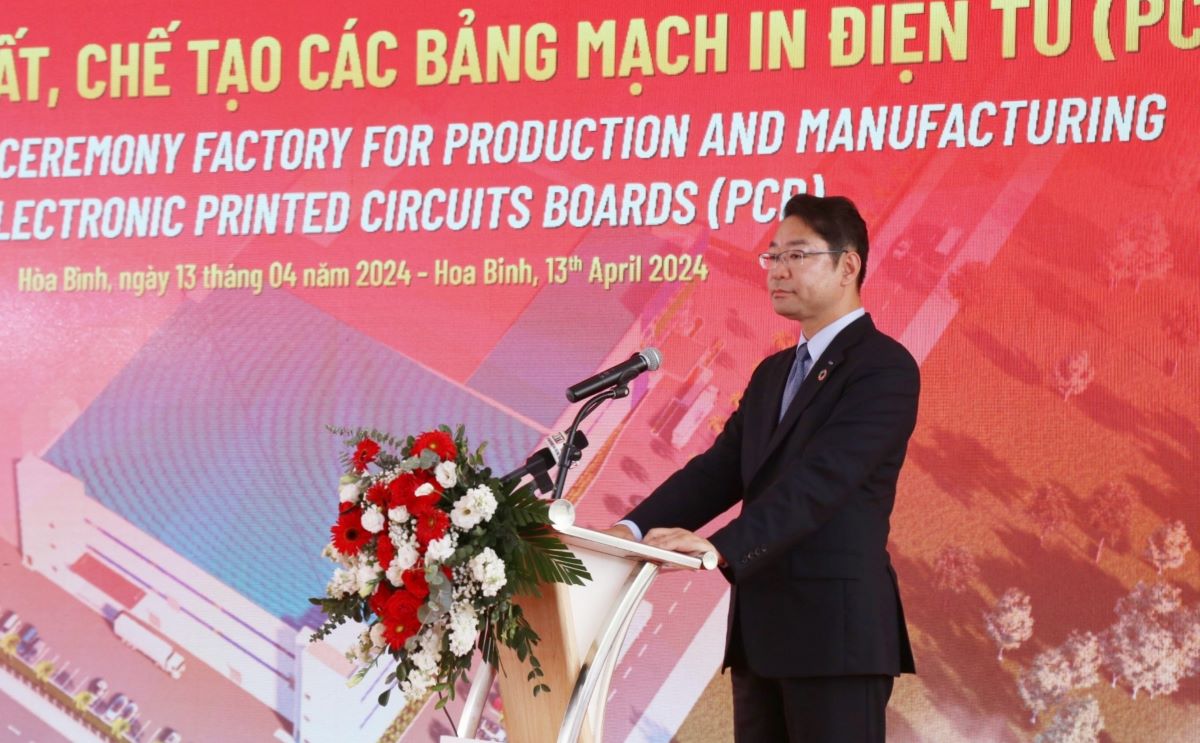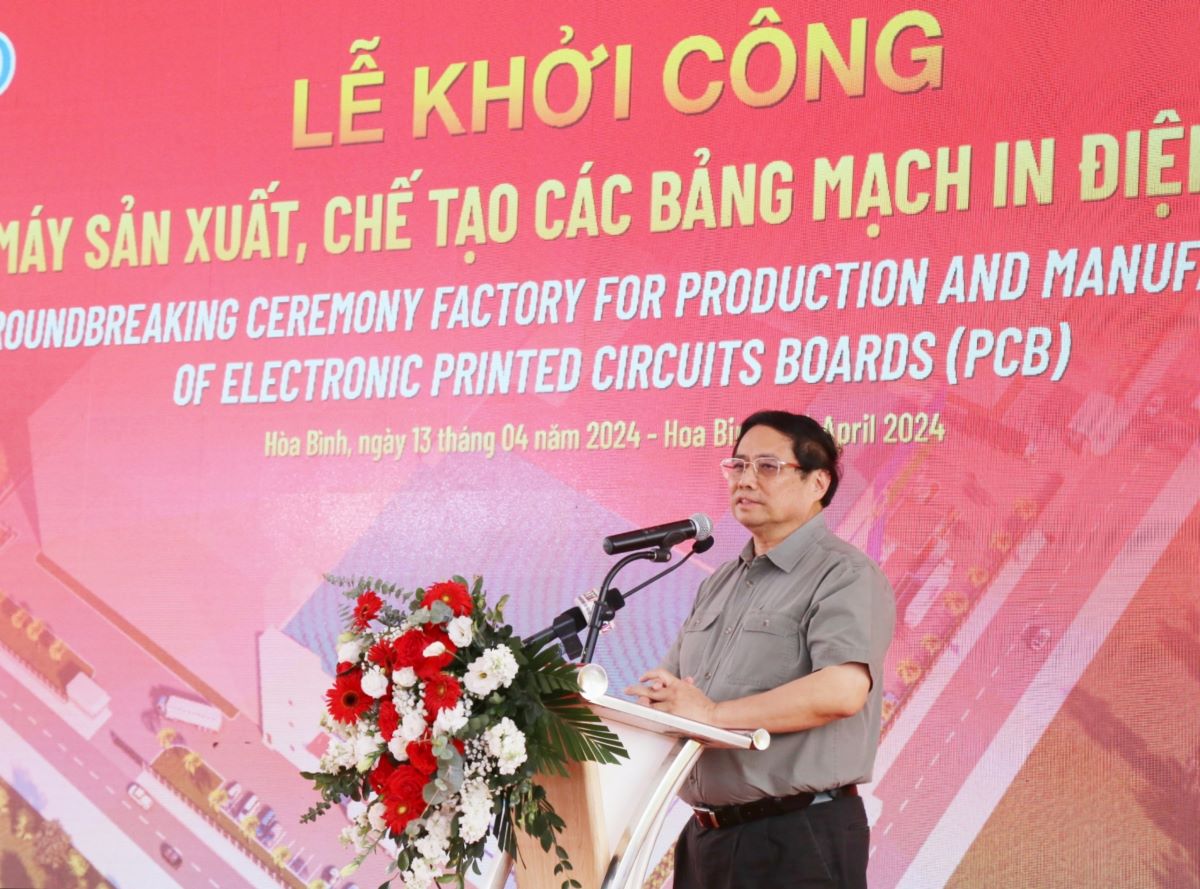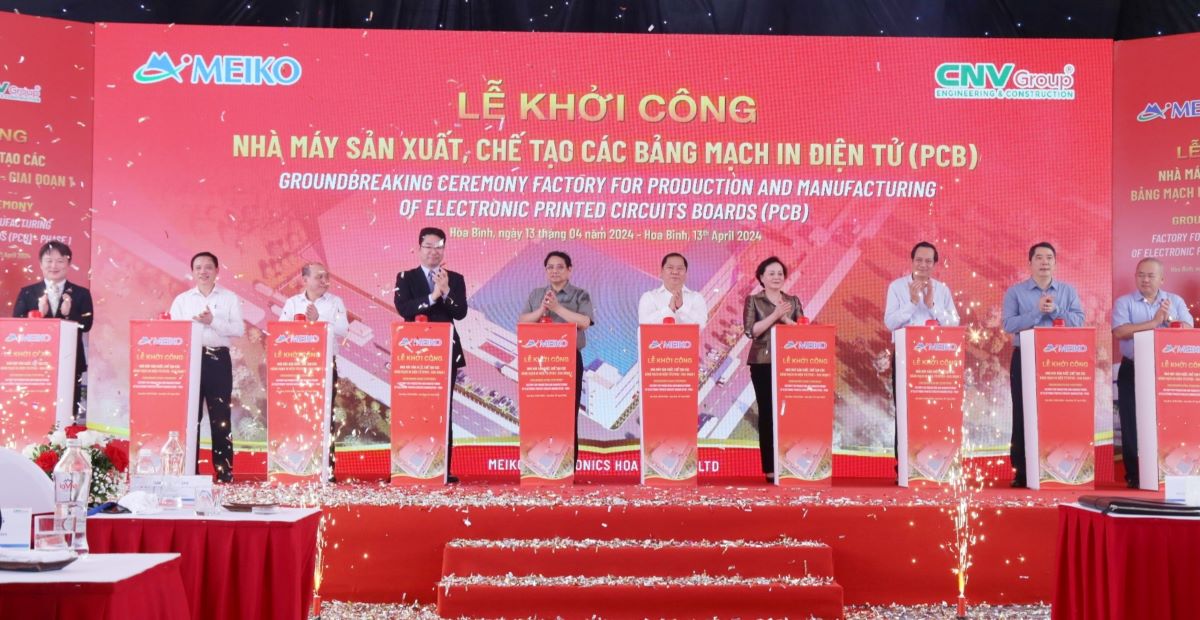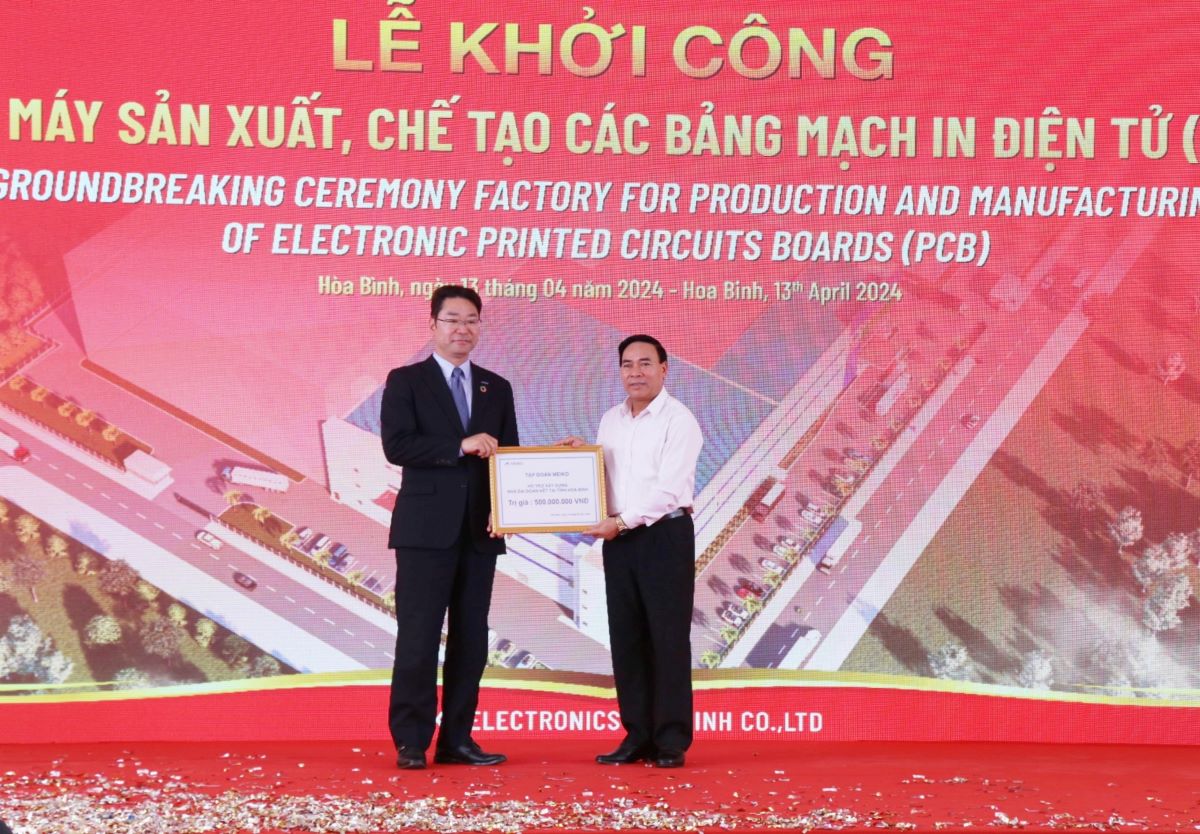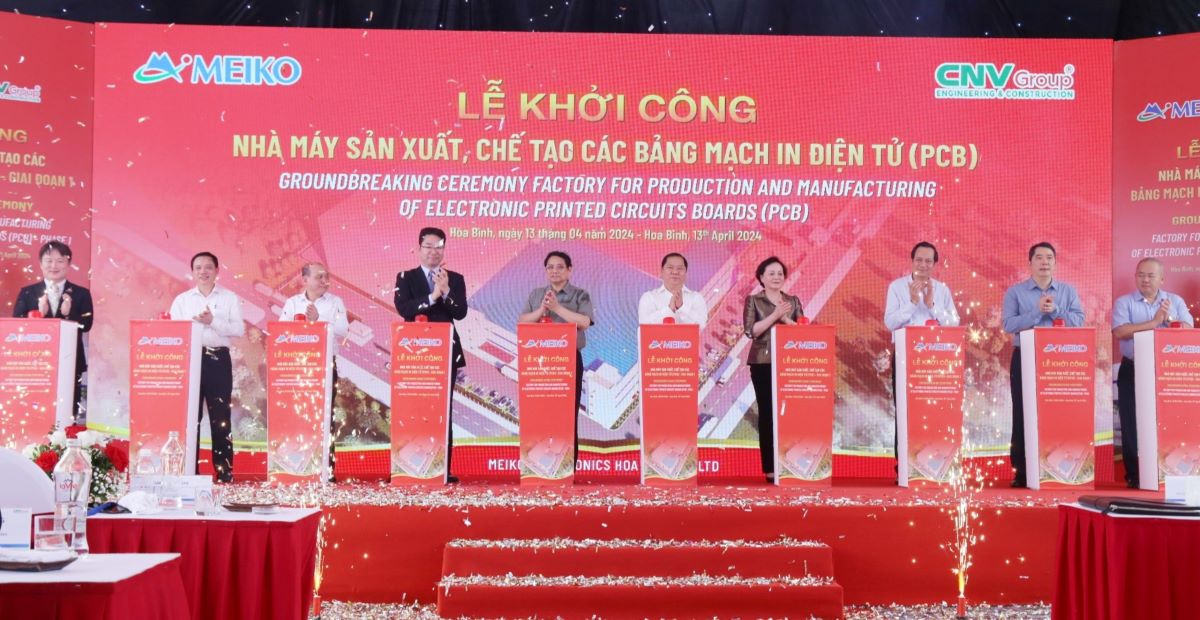
Prime Minister Pham Minh Chinh attended a groundbreaking ceremony for an electronic printed circuit board (PCB) factory at Da River Left Bank Industrial Park in Hoa Binh province on April 13. The electronic PCB factory is invested by Japan's Meiko Group at a total cost of 200 million USD.
Prime Minister Pham Minh Chinh and
leaders of ministries, sectors and Hoa Binh province at the groundbreaking
ceremony.
In his speech, PM Chinh congratulated Meiko on its investment in the province
that boasts geographical advantages, inter-regional transport infrastructure,
abundant workforce and sound supporting policies, highlighting the project is
significant to the province’s development, economic structure shifting and job
generation for local workers.
At the ground-breaking ceremony.
Laying a stress on the motto of "harmonising benefits, sharing risks”, PM Chinh
affirmed that the Government and ministries pledged to have stable strategic
policies, create strategic infrastructure, including transport, electricity,
telecommunications, favourable conditions for investors and reform
institutions.
PM Pham Minh Chinh speaks at the ground-breaking ceremony.
He asked local leaders to direct settlement of administrative procedures and
removal of bottlenecks for Meiko, helping the firm and its contractors to carry
out the project, ensure labour safety and strive to complete it ahead of
schedule with good quality.
The government leader expressed his hope that the factory will make important
contributions to the province’s comprehensive development.
The Meiko Group's Vice Chairman Sakate affirmed that when the factory is put
into operation, it will generate some 300 million USD in revenue and 2,000 jobs
for local workers.
Meiko Group Vice Chairman Sakate at the ceremony.
Established in 1975 in Kanagawa prefecture, Meiko has become a leading
corporation in the world in manufacturing and assembling electronic circuits,
with six factories in Japan, two in China and many representative offices and affiliates
across the globe.
To date, it has invested over 800 million USD in four PCB factories in
Vietnam./.
On the occasion, Meiko donates 500 million VND (19,780 USD) to Hoa Binh
province in an endeavor to demolish temporary houses and dilapidated houses.
According to data from the Hoa Binh Provincial Party Committee, the industrial production index for the first six months of 2025 is estimated to have increased by 20% compared to the same period last year. This marks the highest year-on-year growth rate for this period since 2020.
In the first six months of 2025, Hoa Binh province’s export turnover was estimated at 1.145 billion USD, marking an 18.11% increase compared to the same period in 2024. Import turnover was estimated at $ 804 million, a 17.15% increase, which helped the province maintain a positive trade balance.
The lives of the ethnic minority farmers in Tan Lac district have gradually improved thanks to the new directions in agricultural production. This is a testament to the collective strength fostered through the professional associations and groups implemented by various levels of the district’s Farmers’ Union.
With the motto the "product quality comes first,” after nearly one year of establishment and operation, Muong village’s Clean Food Agricultural and Commercial Cooperative, located in Cau Hamlet, Hung Son Commune (Kim Boi district), has launched reputable, high-quality agricultural products to the market that are well-received by consumers. The products such as Muong village’s pork sausage, salt-cured chicken, and salt-cured pork hocks have gradually carved out a place in the market and they are on the path to obtaining the OCOP certification.
In the past, the phrase "bumper harvest, rock-bottom prices" was a familiar refrain for Vietnamese farmers engaged in fragmented, small-scale agriculture. But today, a new spirit is emerging across rural areas of Hoa Binh province - one of collaboration, organisation, and collective economic models that provide a stable foundation for production.
Maintaining growing area codes and packing facility codes in accordance with regulations is a mandatory requirement for agricultural products to be eligible for export. Recently, the Department of Agriculture and Environment of Hoa Binh province has intensified technical supervision of designated farming areas and packing facilities to safeguard the "green passport" that enables its products to access international markets.



